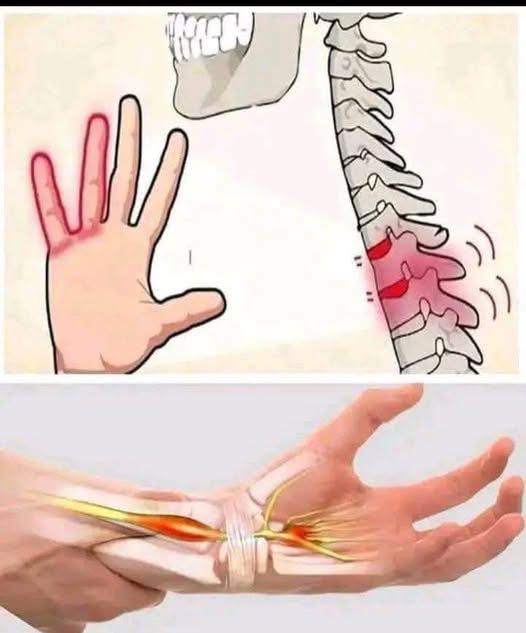Experiencing numbness or tingling in your hands from time to time is fairly common, especially after waking up or keeping your arm in the same position for an extended period. However, when the sensation becomes frequent, persistent, or severe, it may indicate a deeper issue that requires medical attention.
This sensation is medically known as paresthesia, which includes symptoms such as tingling, numbness, or a “pins and needles” feeling. While occasional numbness is usually harmless and temporary, persistent paresthesia could be a sign of nerve dysfunction, circulatory issues, or chronic medical conditions.In this article, we explore the common causes of hand numbness, when to seek medical attention, and the possible health conditions associated with it—based on scientific research and official health sources like the National Institutes of Health (NIH), Mayo Clinic, and the Cleveland Clinic.
What Causes Hand Numbness?
Hand numbness can stem from various factors, ranging from simple mechanical pressure on nerves to more complex systemic diseases. Below are the most common and clinically recognized causes:
1. Poor Posture or Pressure on Nerves
The most benign cause of hand numbness is temporary nerve compression, often due to poor posture. For instance, sleeping with your arm under your head or leaning on your elbow for a long period can compress peripheral nerves, temporarily cutting off nerve signals.
According to the Cleveland Clinic, this type of paresthesia typically resolves on its own once pressure is relieved and circulation returns to normal.
2. Carpal Tunnel Syndrome (CTS)
One of the most common medical causes of hand numbness is carpal tunnel syndrome. This condition occurs when the median nerve, which runs from the forearm into the palm, becomes compressed at the wrist.
Carpal tunnel syndrome is particularly prevalent among people who perform repetitive wrist movements, such as typing, sewing, or using vibrating tools. Symptoms may include:
Numbness or tingling in the thumb, index, and middle fingers
Hand weakness
Difficulty gripping objects
According to the Mayo Clinic, early diagnosis and intervention can help manage symptoms and prevent long-term nerve damage.
Source: Mayo Clinic – Carpal Tunnel Syndrome
3. Ulnar Nerve Entrapment (Cubital Tunnel Syndrome)
This condition affects the ulnar nerve, which passes behind the elbow and into the hand. Pressure on this nerve, especially near the elbow (cubital tunnel), can cause:
Tingling or numbness in the ring and pinky fingers
Weak grip
Hand clumsiness
Ulnar nerve entrapment often worsens when the elbow remains bent for prolonged periods.

Leave a Reply